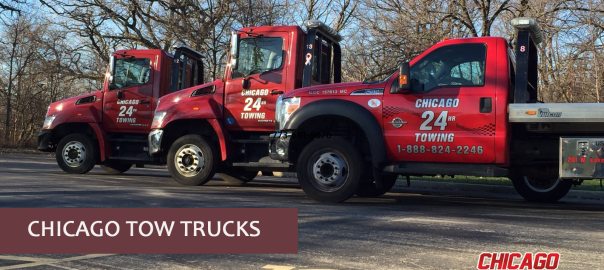Even if it seems like a rare occurrence, it’s actually not that rare that cars find themselves getting towed. Here’s eight great tips for avoiding ever having to deal with getting your car towed in Chicago.
-
Try not to park in common towing spots
These spots vary from place to place – but in most areas, blocking active driveways, intersections, and curb ramps is a sure way to get towed. Many areas also have laws determining how long you can keep your vehicle street parked. It’s worth it to become familiar with the laws regarding parking, driving, standing, and stalling in your area. As a ground rule though, never park by
- Bus Stops
- Loading Zones (usually marked with yellow)
- Blue Zones (if there’s not a disabled person marker on your vehicle)
- Red zones (curbed painted Red)
- Tow Away zones during normal commuting hours.
2. Always Read Street Signs
It’s important to read these carefully, especially when you’re in commercial areas with high traffic. Police and traffic officers tow illegally parked cars much more often, and with a much greater number in high traffic areas – which also often carry much more parking restrictions.
3. Be aware during commute hours.
During crowded evening and morning commutes, many cities bar parking on many streets. A certain parking space could be completely legal at 2pm, but would get your car towed at 3pm. You have to be aware of what the parking ordinance for that space is – even when you’re at a meter. The usual peak commute hours are from 7am to 9am and from 3pm to 7pm.
4. Call a tow company yourself.
Don’t rely on city services to tow your car if it breaks down. Call a private towing company in Chicago or roadside assistance agency yourself.
5. Pay all outstanding traffic tickets.
In some areas, cars with delinquent parking tickets can be booted or even towed – this can happen even if your car is in a perfectly legal parking space. If your car gets booted, you’ll have to pay an extra cost to remove the boot. Booting and towing, added with tickets and time penalties add up to a lot of money. You can avoid this if you pay your parking tickets.
6. Avoid getting parking tickets in the first place.
- Set an alarm on your phone to remind you that the meter is about to expire.
- Keep a bunch of quarters for meters in your car.
- If it’s offered in your area, buy a prepaid parking card.
- Mark your calendar with the street cleaning schedule and no-parking times for the areas that you frequent.
7. Keep current vehicle registration.
All police have the right to tow and potentially impound your car if your registration isn’t current when you’re stopped by a police officer.
8. Always keep your driver’s license current.
If you’re ever stopped by police while you’re driving, and your license has expired or is otherwise illegible or not current, the police have the right to tow and impound your vehicle if nobody else is available inside the car to take over the wheel.


